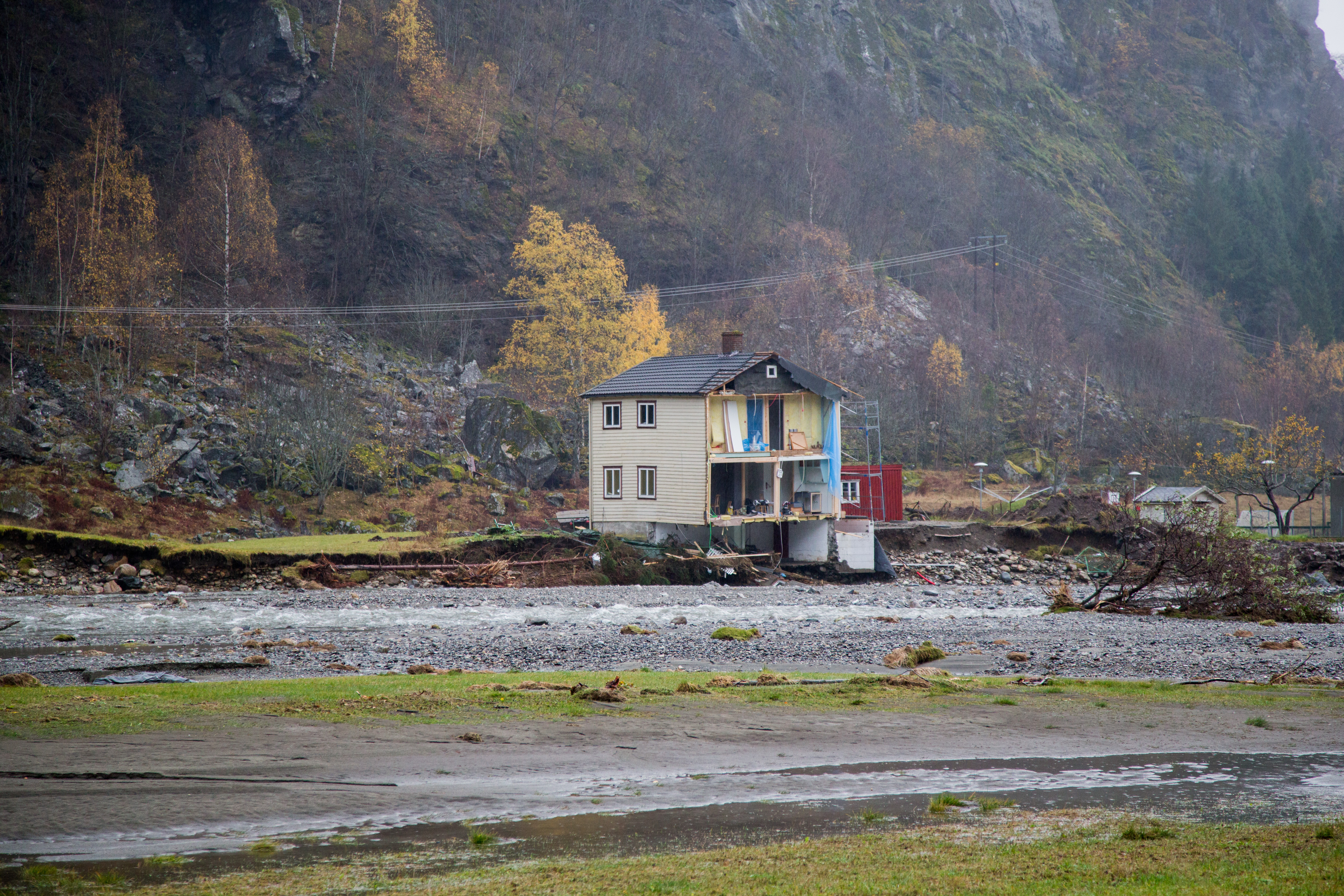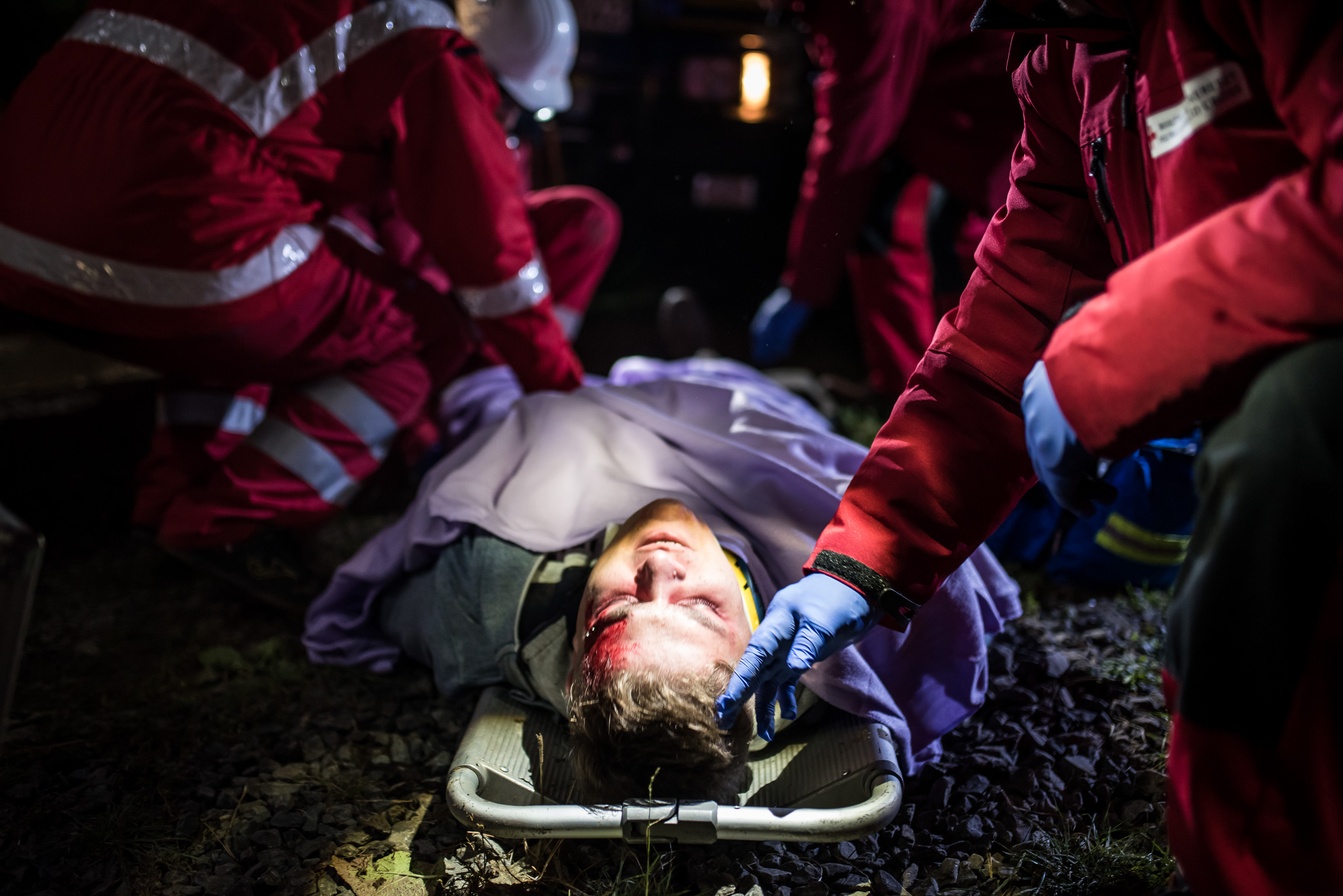'RED ALERT': Managing disaster risks in Europe
Climate change will increasingly lead to extreme weather events and natural hazards – from heavy floods to deadly heatwaves and forest fires. Disasters already impact hundreds of millions of people worldwide every year, killing tens of thousands. In the European Union (EU), this kind of emergencies cost over 90,000 lives and EUR 500 billion of economic losses between 1980 and 2017. More recently, the COVID-19 pandemic has shown the consequences of not being adequately prepared, and has provided lessons for future preparedness beyond the known and expected risks.
Across Europe, National Red Cross Societies and the International Federation of the Red Cross and Red Crescent Societies (IFRC) are stepping up efforts to manage disaster risks, rather than disasters: from awareness-raising to better preparedness, strengthened anticipation capacity and early action for more frequent, intense and catastrophic weather events, public health emergencies and other risks.
The Red Cross EU Office has developed a new publication, Red Alert, showcasing good practices, challenges and lessons learned by National Red Cross Societies in Europe and the IFRC on reducing and managing disaster risks across the region. The examples cover the importance of understanding risks and acting at local level, early warning mechanisms and anticipatory action, the combination of life-saving and awareness-raising actions to increase people’s resilience, continuous efforts to adapt, innovate and test capacities for changing hazards, and how to expand collaboration and partnerships to optimise operational reach, scale and impacts on preparedness and emergency response.

“Although much attention is now focused on the COVID-19 pandemic, our concern about the increasing risk of natural hazards has not disappeared. And there will be no vaccine against climate change,” stated Maarten van Aalst, Director of the Red Cross Red Crescent Climate Centre. “Europe is starting to adapt, based on centuries of experience coping with disasters. We need to build on that, but also better anticipate emerging risks – and prepare for the unexpected,” he underlined.
His conclusion? “We do know what works to combine analysis, awareness and action. Recognising this need for urgent action, the IFRC has made climate change one of its top five priorities for the coming decade, and National Red Cross and Red Crescent Societies across Europe stand ready to work with communities and authorities to plan for a more resilient future and build local capacity to respond to the rising risks.”
In the EU, over the past years, the revised legislation on the Union Civil Protection Mechanism (UCPM) has aimed to improve prevention, preparedness and response to disasters. Current ambitions, based on the learnings from the COVID-19 pandemic and other emergencies, seek to increase coordination and make disaster risk management systems even stronger.

Collaboration between neighbouring countries and regions must be done at larger scale. Better linking of scientific data between Member States, civil protection and disaster management practitioners and at-risk people is essential. All actors must improve their multi-risk assessments and analyses, increase attention to prevention, disaster risk reduction and anticipatory action, and adopt more inclusive and comprehensive approaches to managing risks to prevent and reduce suffering and losses.
Disasters triggered by climate change and related developments will continue increasing in scope, frequency and intensity, with millions of people’s lives and well-being at stake. But there is growing evidence on how to reduce these disasters, anticipate and prepare for them while minimising their human, economic, social and environmental consequences. Key stakeholders at local and regional levels, the European Union and Member States must scale up cooperation and partnerships. It is everybody’s responsibility to do their part and helping to address this major emergency without delay
Homepage image: © Spanish Red Cross
ADDITIONAL INFORMATION:
Other articles on disasters and climate change:
- ‘Climate change and COVID-19 must be tackled together’ (here)
- ‘Urgent climate action, a shared responsibility’ (here)
- ‘At least 51.6 million people doubly hit by climate-related disasters and COVID-19, new analysis by IFRC reveals’ (here)
The World Disasters Report is an independent publication commissioned by the IFRC. Every two years, experts present a body of research that examines challenges, trends and innovations around a specific theme.
For media inquiries, please contact Eva Oyón on: eva.oyon@redcross.eu or +32 2 235 09 22

